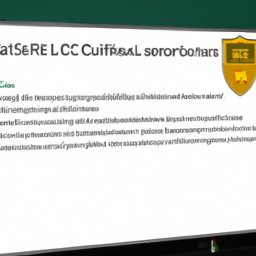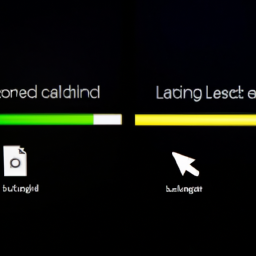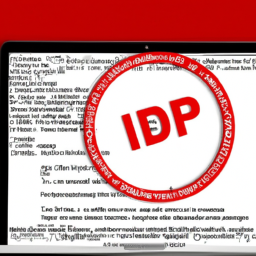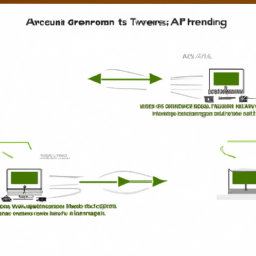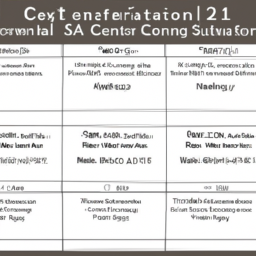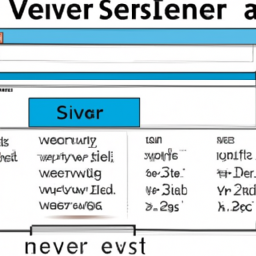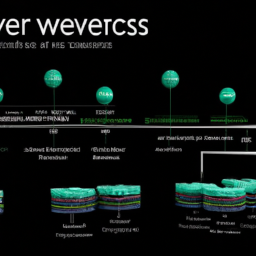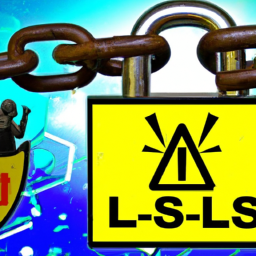Imagine a bustling city with skyscrapers reaching towards the sky, each building housing a multitude of businesses and activities. Now, picture these buildings becoming overpopulated, bursting at the seams with people and objects. Chaos ensues, as the infrastructure struggles to handle the overwhelming load.
This imagery serves as an analogy for what happens when the disk space of a web hosting account exceeds its limit.
In the world of web hosting, disk space plays a crucial role in the smooth functioning of websites. It is the digital real estate where all the files, databases, and content reside. When the disk space exceeds its limit, a cascade of consequences follows.
Website performance deteriorates, data loss becomes a real threat, and hosting accounts may even be suspended.
To navigate this complex landscape and avoid these pitfalls, understanding the consequences of exceeding disk space limits is paramount. In this article, we delve into the intricacies of web hosting, providing technical expertise and an analytical approach to help you grasp the implications of disk space exceeding its limit.
By paying attention to detail and implementing effective management strategies, you can ensure your web hosting experience remains seamless and hassle-free.
Key Takeaways
- Exceeding disk space limits can lead to website performance deterioration, slower loading times, and decreased responsiveness.
- It can negatively impact a website’s search engine optimization (SEO) and rankings in search results.
- Data loss is a potential consequence, resulting in the loss of important files, databases, and user-generated content.
- Regular monitoring and management of disk space usage are crucial to avoid performance degradation and data loss.
Website Performance Degradation
If you let your website’s disk space exceed its limit, you’ll start noticing a significant degradation in its performance. This is because when the server’s storage capacity is overloaded, it struggles to handle the increased workload, resulting in slower loading times and decreased overall responsiveness.
Users may experience delays in page loading, images failing to load, or even complete website downtime. Furthermore, this performance degradation can have a negative impact on your website’s search engine optimization (SEO). Search engines prioritize websites that provide a seamless user experience, and a slow-loading website will likely receive lower rankings in search results.
To avoid these issues, it’s crucial to regularly monitor and manage your website’s disk space usage. Failure to do so can not only harm your website’s performance but also lead to potential data loss.
Data Loss
In the realm of web hosting, when the storage capacity is stretched to its seams, it’s like a delicate house of cards on the verge of collapse. When disk space exceeds its limit, the consequences can be dire, leading to potential data loss and a significant impact on website functionality.
Data loss occurs when the hosting account reaches its storage limit and new data cannot be saved or existing data becomes corrupted. This can result in the loss of important files, databases, and user-generated content. Moreover, exceeding disk space limits can cause website performance degradation, leading to slow loading times, server errors, and an overall poor user experience.
To mitigate these risks, it is crucial to regularly back up data and closely monitor disk space usage. Failure to address this issue promptly can result in the suspension of the hosting account, which will be discussed in the next section.
Suspension of Hosting Account
When your hosting account is suspended, it’s like being locked out of your own virtual space, leaving your website inaccessible and your online presence at a standstill. This is usually the consequence of exceeding the disk space limit set by your web hosting provider. To emphasize the impact of account suspension, consider the following table:
| Impact on Website Backups |
|---|
| 1. Unable to create new backups |
| 2. Existing backups may become inaccessible |
| 3. Restoring website from backups may not be possible |
To reactivate your account, you will need to go through the account reactivation process, which may involve upgrading your hosting plan or deleting unnecessary files to free up disk space. However, it is important to note that even after reactivation, the impact on website backups may still persist. Therefore, it is crucial to regularly monitor disk space to prevent exceeding the limits and ensure the availability of backups.
Importance of Regular Disk Space Monitoring
Regularly monitoring the amount of storage available on your hosting account is like having a safety net that ensures your website’s smooth operation and prevents any unforeseen setbacks.
Disk space optimization is crucial for maintaining the optimal performance of your website. When your disk space exceeds its limit, it can have a significant impact on your website’s SEO. Search engines prioritize websites that load quickly and have a good user experience.
When your website’s disk space is full, it can slow down your website’s loading time, leading to a negative impact on your search engine rankings. This can result in lower visibility, decreased organic traffic, and ultimately, reduced conversions and revenue.
To effectively manage your disk space and prevent these consequences, it is essential to implement efficient storage strategies. These strategies will be discussed in the subsequent section.
Effective Disk Space Management Strategies
Optimize your website’s performance by efficiently managing the storage space available to you. Effective disk space management strategies are crucial in ensuring your website runs smoothly and avoids exceeding its storage limit. One strategy is file compression, which reduces the size of files, freeing up valuable disk space. Compressed files can be easily decompressed and accessed when needed. Another important strategy is regular data backup. Backing up your website’s data not only protects it from potential loss but also allows you to free up disk space by removing unnecessary files that have been safely backed up. By implementing these strategies, you can maximize your available disk space and prevent your website from exceeding its limits. In the next section, we will provide tips for avoiding disk space exceeding limit.
Tips for Avoiding Disk Space Exceeding Limit
To effectively manage disk space and avoid exceeding limits in web hosting, it’s crucial to implement disk space optimization strategies. One such strategy is file compression, which reduces the size of files without compromising their functionality.
By compressing files, you can significantly save disk space and improve website performance. Utilizing industry-standard compression algorithms, such as gzip or deflate, helps reduce the size of text-based files like HTML, CSS, and JavaScript.
Additionally, compressing images using formats like JPEG or PNG can further optimize disk space usage.
It’s important to note that while compression is effective in reducing file size, it may slightly impact the load time of compressed files. Therefore, it’s essential to strike a balance between file size reduction and maintaining an optimal user experience.
By implementing file compression techniques, you can efficiently manage disk space and ensure smooth website operations.
Frequently Asked Questions
How does disk space exceeding limit affect website security?
Exceeding the disk space limit can pose significant security risks to your website. It’s like a dam bursting its banks, flooding your site with data breaches and vulnerability risks.
When your disk space is full, it limits your ability to update and patch software, leaving your website exposed to potential attacks. Additionally, it can lead to system instability and crashes, further compromising your site’s security.
It’s crucial to monitor and manage disk space to safeguard your website against these threats.
Can disk space exceeding limit impact the loading time of my website?
Exceeding the disk space limit can indeed impact the loading time of your website. When you go beyond the allocated disk space, it puts a strain on the server, leading to slower performance.
Monitoring disk space regularly is crucial to avoid such issues. To optimize website performance, consider compressing files, removing unnecessary data, and implementing caching techniques.
By managing disk space effectively, you can ensure a faster and smoother user experience for your website visitors.
What are the potential consequences of exceeding disk space limit for an eCommerce website?
Exceeding the disk space limit for your ecommerce website can have a significant impact on its performance. It may lead to slower loading times, causing frustration for visitors and potential customers.
Additionally, if the disk space is full, there is a risk of potential loss of customer data, which can be detrimental to your business.
As a web hosting specialist, it’s crucial to regularly monitor and manage your disk space to ensure optimal website performance and avoid any data loss.
Does disk space exceeding limit affect the ability to backup and restore website data?
Exceeding the disk space limit can indeed affect the ability to backup and restore website data. When the disk space is full, there may not be enough room to create backups, leading to potential data loss.
Additionally, if the backup process is interrupted due to insufficient space, it can result in incomplete or corrupted backups. It’s crucial to regularly monitor and manage disk space to avoid such issues and ensure the safety and integrity of website data.
Are there any legal implications of exceeding the allocated disk space limit in web hosting?
Exceeding the allocated disk space limit in web hosting can have serious legal implications. Violating the terms of service agreement can result in penalties, including suspension or termination of your hosting account. Additionally, it can negatively impact your website’s performance.
When you exceed the disk space limit, it puts a strain on the server, leading to slower loading times and potential downtime. It’s crucial to monitor and manage your disk space usage to avoid these consequences.
Conclusion
In conclusion, exceeding the disk space limit in web hosting can have dire consequences. It’s like a ship carrying too much cargo, causing it to slow down and struggle to navigate.
Website performance will degrade, leading to frustrated visitors. Data loss becomes a real risk, like losing valuable treasures at sea. Your hosting account may even be suspended, like being stranded on a deserted island.
That’s why regular disk space monitoring and effective management strategies are crucial, just like a skilled captain steering the ship in calm waters.
So, avoid exceeding the limit and sail smoothly in the vast sea of web hosting.





























